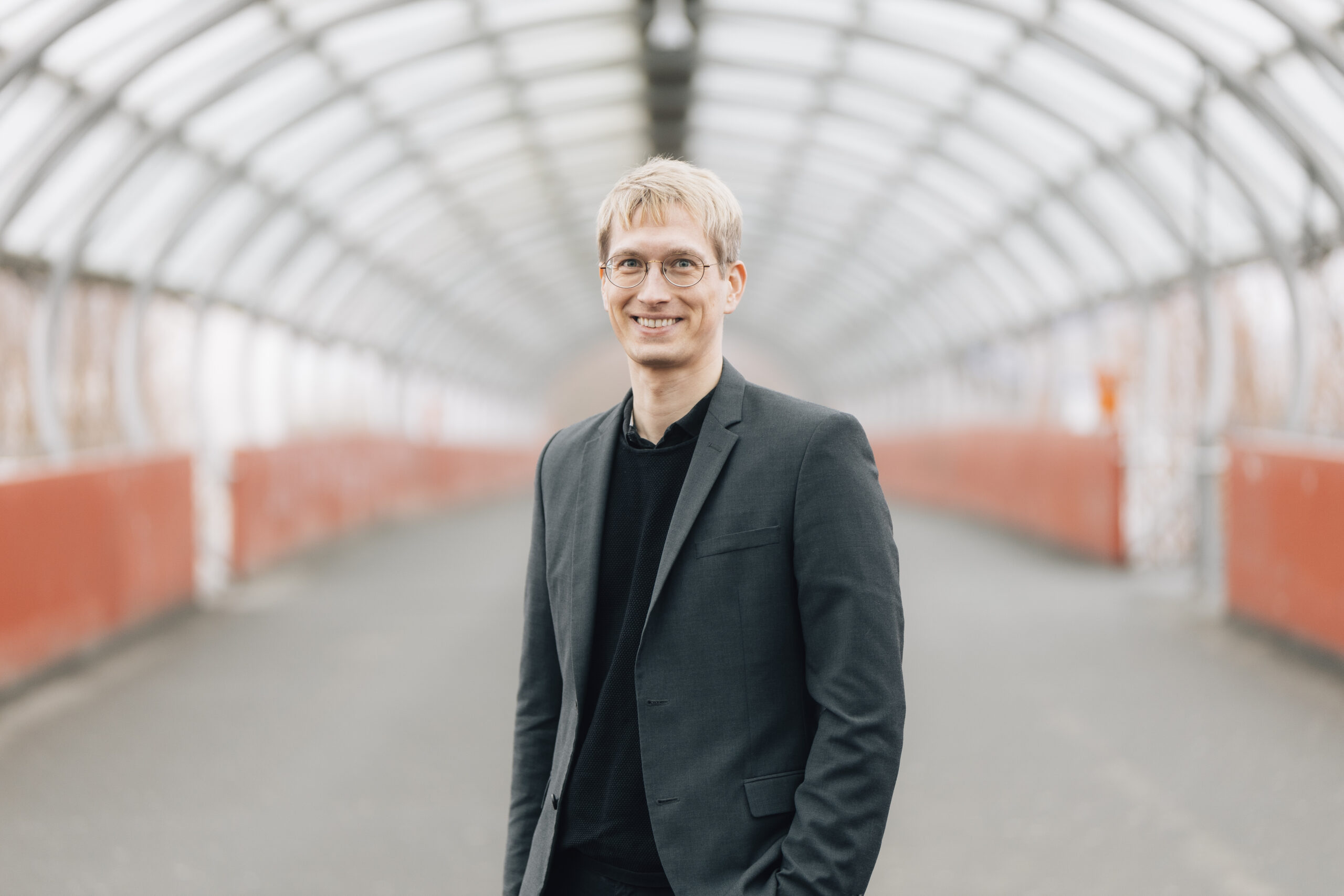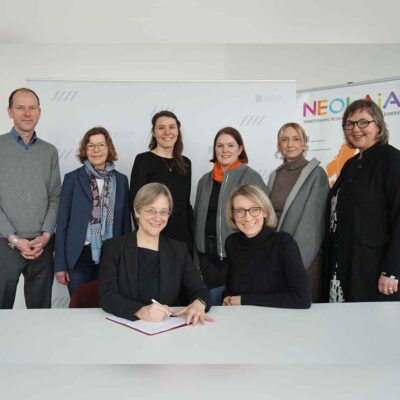How can we use mathematics to capture and describe complex systems that seem to be driven by randomness? How, for example, can we translate an economic system in which people interact with each other into a mathematical system? How can we describe the fact that even the slightest fluctuations can lead to major changes in climate dynamics? Stochastician Professor Dr Benjamin Gess from the Faculty of Mathematics is researching these and related questions.
Recognizing his work as visionary research, the European Research Council (ERC) has awarded him an ERC Consolidator Grant. The grant supports excellent researchers who want to establish their own research area or an independent research team. Gess will receive two million euros over a five-year period from the ERC for his research project. He and his team want to capture the interactions of complexity and random effects in a mathematical structure. ‘The funding comes at just the right time so that I can concentrate on developing this research area,’ he says.

© Universität Bielefeld/M. Adamski
An eye on societal relevance
Benjamin Gess is a specialist in stochastic partial differential equations (SPDEs). Stochastics deals primarily with randomness, its laws, and its probabilities. SPDEs are central to modelling systems influenced by randomness in fluid, continuum, and quantum mechanics, as well as in engineering applications.
‘Fluctuations in the Continuum and Conservative Stochastic Partial Differential Equations’ is the title of his funded project. ‘At the moment, there is a lot of progress in the air in this field,’ says Gess. Because we can use the special equations to describe machine learning processes, climate systems, or even economic developments, the topic is of ‘great societal relevance and urgency’, says the mathematician.
Gess is also head of a subproject in the Collaborative Research Centre (CRC 1283) ‘Taming uncertainty and profiting from randomness and low regularity in analysis, stochastics and their applications’. His project is about stochastic partial differential equations with conservative noise.
The butterfly effect and other complex events
These special equations can be used to grasp the randomness and fluctuations that exist almost everywhere in complex systems such as the world’s climate. ‘These systems are exposed to a myriad of influences and depend on a multitude of parameters that interact with each other,’ says Gess.
An example of this is the butterfly effect. This states that the flap of a butterfly’s wings in Brazil can, under certain circumstances, trigger a tornado in Texas. Gess ultimately aims to better understand such interactions of probability, randomness, and a complex dynamic behaviour and to describe them in mathematical terms. ‘I am also interested in discovering new mathematical structures and methods. Complex systems in which randomness is a dynamic process play a role not only on a large scale such as the climate, but also in mesoscopic regimes—for example, when it comes to the question of how atoms behave in turbulent liquids or gases.
In search of synergies in mathematics
Professor Dr Benjamin Gess was appointed to the Faculty of Mathematics in 2016 in mathematics, in particular, stochastic analysis . He also heads a research group at the Max Planck Institute for Mathematics in the Sciences in Leipzig. ‘My research teams in Bielefeld and Leipzig work together closely. Happily, this often results in unexpected findings.’
Gess studied mathematics and computer science in Bonn and Warwick (UK) before earning his doctorate at Bielefeld University. His doctoral thesis was awarded the Universitätsgesellschaft Bielefeld [Bielefeld University Society] Dissertation Prize in 2012. As a postdoc, the mathematician worked at Bielefeld University, Technische Universität Berlin, and Humboldt-Universität zu Berlin as well as the University of Chicago (USA).
In his free time, the academic likes going to the theatre or exploring the hiking trails around Bielefeld for jogging and walking. ‘I feel very much at home in Bielefeld,’ he says. ‘I particularly like the interdisciplinarity embraced at the university and the friendly team spirit in the Faculty of Mathematics.’ There is a great willingness to do research together. ‘Perhaps this also explains why the Faculty of Mathematics is home to no fewer than two Collaborative Research Centres,’ says Gess.
He sees great potential for the mathematics of the future in bringing together the core mathematical disciplines—algebra, analysis, geometry, and probability theory. That is why he and colleagues from his faculty have launched a new research initiative that is working on methods to develop synergies between the branches. Benjamin Gess is one of the initiative’s three spokespersons together with algebraist Professor Dr Christopher Voll and number theorist Professor Claudia Alfes-Neumann. Gess: ‘Linking the core mathematical disciplines provides an opportunity to tackle the great challenges of mathematics—including the study of Yang–Mills equations, proof of the Hodge conjecture, and the mathematical understanding of machine learning. This is a huge motivation to work on finding new synergies in mathematics and its applications.’





